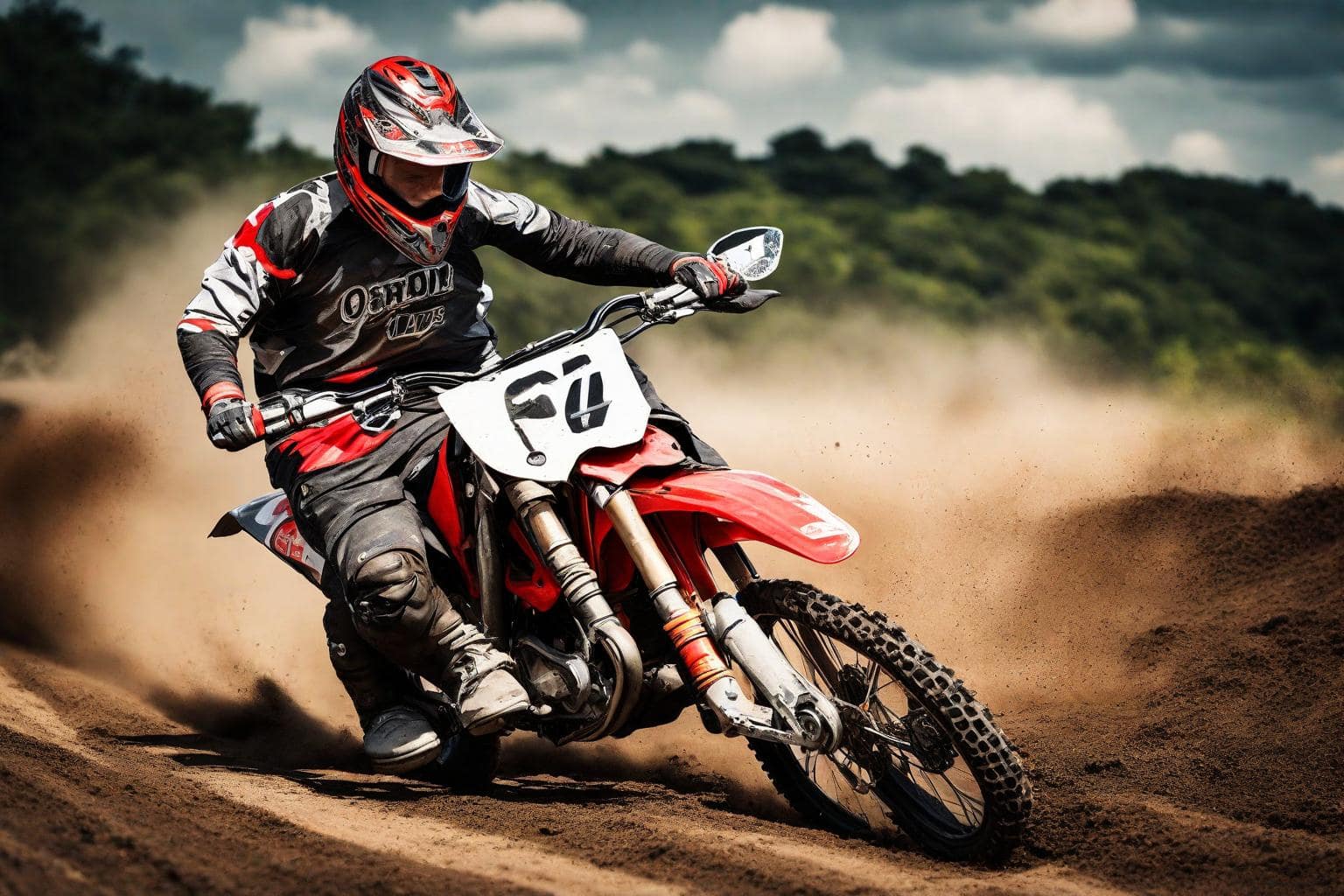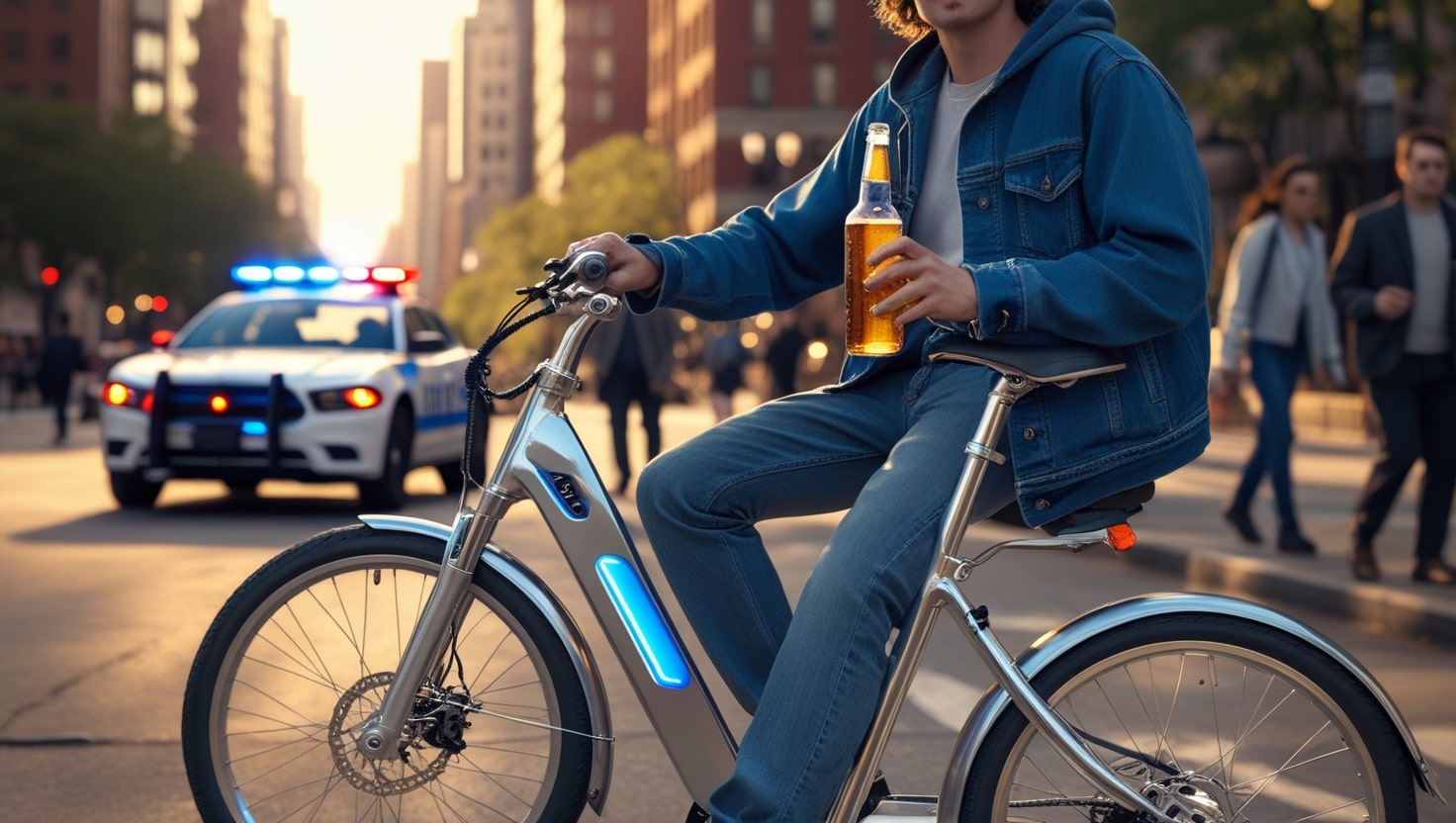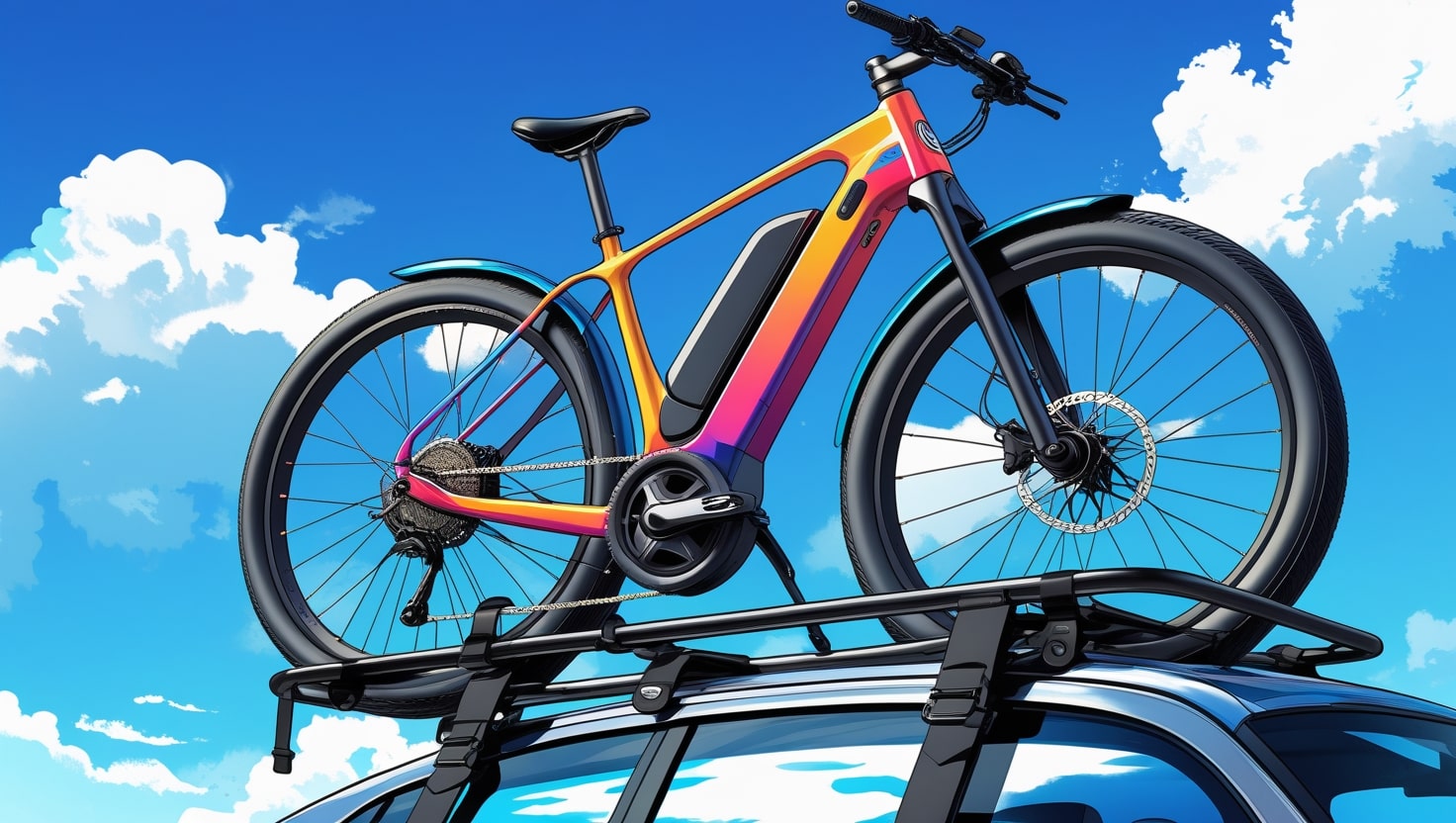Jumping into the world of dirt biking brings a lot of thrill and exciting new experiences, especially when exploring off-road adventures. Many people tend to overlook the importance of complying with the legal requirements connected to riding a dirt bike. The question, “Do you need a motorcycle license for a dirt bike?” is one that often comes up. Depending on the law in your area, a license may be required, especially when transitioning from off-road trails to public roads. It’s crucial to understand that riding safely involves knowing and following the requirements to stay legal and ensure the respect of the community.
Many riders assume that because they are on trails or in off-road environments, the usual licensing and realities of the law don’t apply. This perspective can be inaccurate and even risky. Staying informed and aware of these requirements not only keeps you compliant with the law but also ensures your safety. It’s easy to overlook these details, especially when caught up in the excitement of engaging in this hobby, but a little effort in understanding the relevant information goes a long way in keeping your riding experience fulfilling and free from legal trouble.
Understanding Dirt Bike Classification
When it comes to dirt bike riding, understanding the classification of your motorbike is crucial. A dirt bike is primarily designed for off-road use, but its engine size, weight, and purpose also play a big role in determining the licensing and registration requirements.
For example, if the displacement of the engine is significant, the bike might require additional registration and need to meet certain safety standards. The bike’s effect on the environment is also something to keep in mind, as it can influence the rules surrounding its use. These factors are essential in making sure your dirt bike is fully compliant with the law and considered roadworthy.
From personal experience, it’s easy to make an educated guess about the state of affairs when all of these factors are clearly defined. Whether you’re casually off-roading or engaging in serious competition, knowing how your bike fits within the regulatory framework helps ensure your ride is both effective and legal.
The thrill of a casual weekend ride is amplified when you know you’re on a compliant bike that meets all the necessary requirements. Plus, being aware of when you might transition to on-road riding gives you confidence as a rider.
Do you Need a Motorcycle License for a Dirt Bike
You can ride your dirt bike in your backyard, on designated trails, in parks, or in open spaces like private property with the owner’s permission. For public areas like public motocross tracks, the regulations may differ depending on your county or city. If your property is near other homes, you should check the local rules before you start biking. If you plan to ride on the road, then you will need a license, as dirt bikes in stock form are made for off-road use and lack the necessary equipment to be street legal.
In many states, you can make the conversion to a dual-purpose bike by adding features like a headlight with both low beam and high beam, a taillight connected to the front brake lever and rear brake pedal, DOT-approved turn signals, a rearview mirror, and a horn. These modifications are essential to meet road safety regulations and allow your dirt bike to be legally used on public roads.
In the U.S., the rules for mopeds and motorcycles are distinct. Typically, two-wheeled vehicles with a displacement of 50cc or less are considered mopeds, and anything above that is classified as a motorcycle. Some states may require you to have a driver’s license and possibly a permit for riding a motorcycle. Always follow the local guidelines in your state to ensure compliance with the necessary class of license.
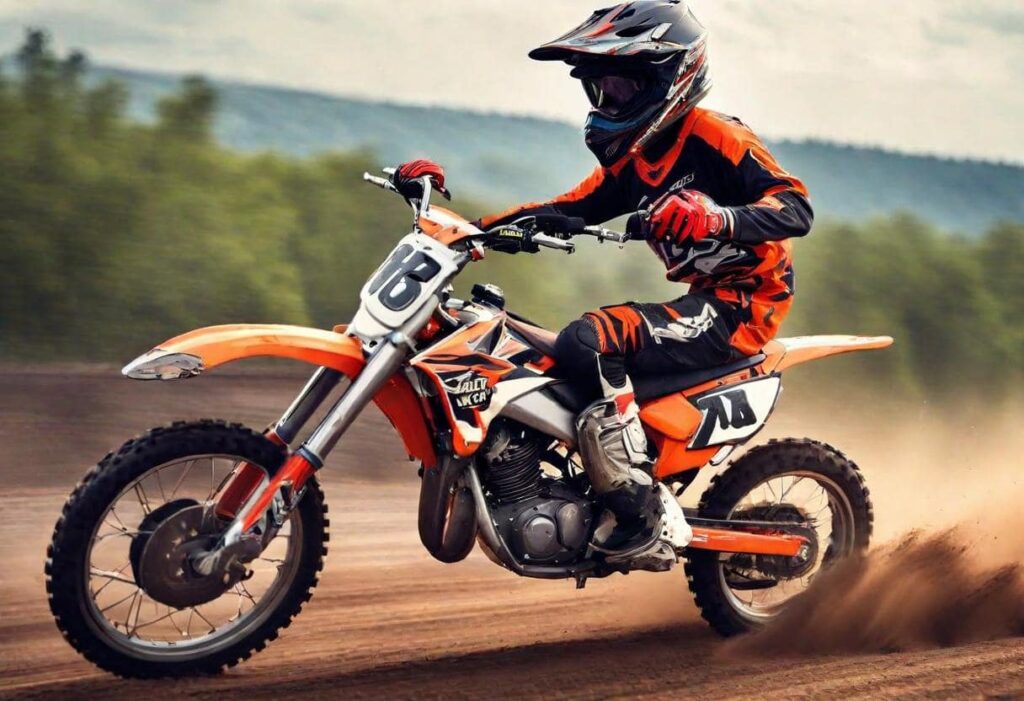
License Requirements for Different Types of Dirt Bikes
When it comes to riding a dirt bike, many people wonder about the license and licensing requirements. The truth is, it depends on whether you are riding off-road or on a street-legal bike. There are key differences between these two categories of vehicles, and each has its conditions. For off-road riding, the requirements might be less strict, but for street-legal bikes, you will need to meet specific licensing rules.
Here’s some information about each category:
Off-Road Dirt Bikes
When it comes to off-road dirt bike riding, you typically don’t need a traditional road license. However, the obligations for riding an off-road vehicle can vary depending on local regulations. In some cases, you may need permits or registration, and it’s important to contact local authorities to understand the specific rules for your state or area. For example, in states like California, riders must ensure their bike is registered with the DMV, often requiring an ID plate or placard. This process includes proving ownership, completing a verification form, and paying a fee.
Additionally, certain vehicles are categorized as OHVs, which are subject to CARB emission standards. If your bike meets the standards, it will receive a green ID plate, and if not, a red ID plate. These conditions don’t necessarily require a road license, but they still ensure compliance with local regulations for safe and legal riding on land designated for off-road use. Make sure to understand all the permissions and requirements before hitting the trails!
Street-Legal Dirt Bikes
For a dirt bike to be street-legal, it must meet certain requirements set by the manufacturer and comply with local laws for public roads. Typically, this involves modifying the vehicle by adding specific equipment like a headlight, tail lamp, and mirrors. Once the bike is properly equipped, it undergoes a safety inspection at a licensed repair shop or dealer to ensure it meets security and ecology requirements. After passing inspection, the bike can be registered, and you’ll receive a license plate for legal ride on public roads.
In states like Washington, you may also need to complete a written test and a driving exam to secure a valid motorcycle license or an endorsement on your driver’s license for both two-wheeled and three-wheeled vehicles. The process can involve submitting necessary papers and documentation to the local vehicle licensing office, ensuring the title and registration reflect that your bike is now ready for street-legal use. Don’t forget to obtain an ORV decal alongside the motorcycle license plate as proof of compliance.
Whether you’re riding an off-road motorcycle or a modified product for public streets, following the required procedures guarantees that you’re meeting the local road use requirements and can enjoy a safe, legal ride.
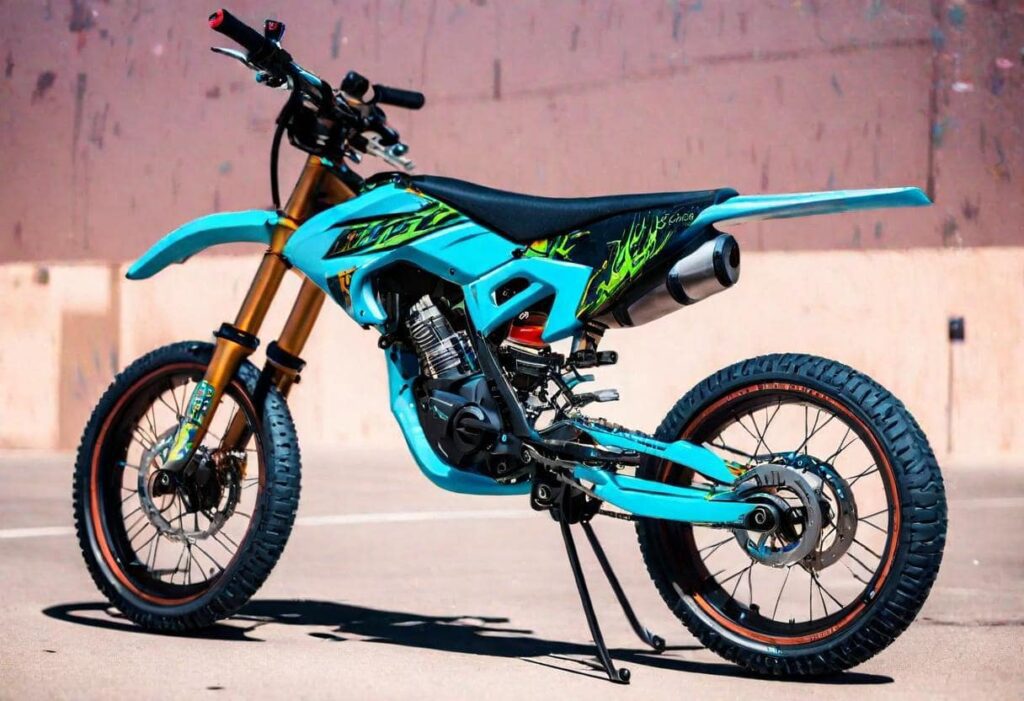
Age and Vehicle Size Considerations
Youth Riders and Mini Dirt Bikes
Mini dirt bikes are extremely popular among younger riders and children because they are scaled-down versions of regular bikes, making them more manageable in terms of both size and power. These bikes are a great choice for enthusiasts just starting, as they provide enough control for younger riders to feel comfortable while learning the ropes. Here are the following key points for this group of riders:
Age and Size Match
When choosing a bike for a young rider, it’s important to ensure that the size and power of the bike match the physical size, age, and skill of the rider. A bike that is too big or powerful can be difficult to control and may pose serious risks to the rider’s safety. The right balance between the bike’s power and the rider’s abilities ensures a safer and more enjoyable riding experience.
Safety Gear
For youth riders, being properly equipped with the right safety gear is crucial to minimize the risk of injury. Essential items like helmets, gloves, boots, and protective garments provide the necessary protection while riding. Ensuring that young riders are always dressed in this gear helps keep them safe and allows them to enjoy their dirt bike experience with reduced worry.
Supervision
Young riders, especially beginner riders, should always be supervised by adults to ensure safe riding, particularly in challenging off-road areas. While the supervising adult may or may not be on a dirt bike, proper guidance is essential. Enrolling youth in a special dirt bike safety course can teach them the basics of bike operation and help them develop the skills for safe riding.
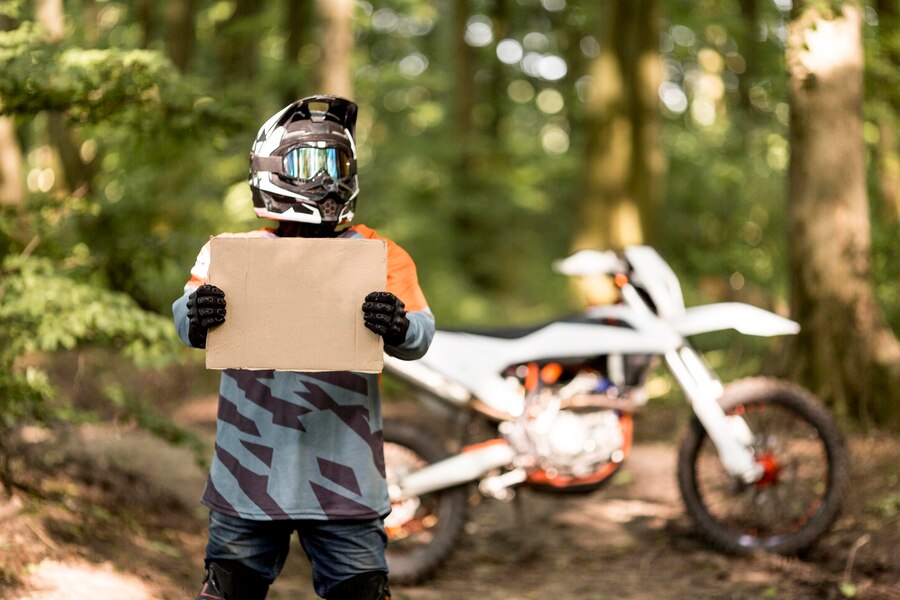
Youth Riders and Mini Dirt Bikes
As young riders mature, they opt for larger and more powerful dirt bikes. The market offers a wide selection of bikes for adults, with various features such as:
Riding Experience
When it comes to choosing the right bike, your riding skills and experience matter a lot. Beginners should start with low-power models or mid-power models to accumulate the required skills and get comfortable with motors. On the other hand, experienced riders may prefer high-performance bikes that are better suited for different uses. This way, each rider can select a bike that matches their skill level and ensures a safe and enjoyable riding experience.
Intended Use
When selecting a dirt bike, it’s important to consider its intended use. Whether you’re riding on trails, competing in motocross, or looking for a bike suited for dual sports, each option has its requirements. Different bikes are built for different uses, so understanding what kind of riding you’ll be doing will help you choose the right one that fits your needs.
Ergonomics
When selecting a dirt bike, ergonomics plays a big role in making sure it’s comfortable for you. Factors like height, foot placement, and hand reach have a direct impact on your driving control and overall comfort while riding. It’s a good idea to try different models in advance to see how they fit and to avoid fatigue during long rides. Make sure the bike’s characteristics and appearance also suit your body and preferences for the best riding experience.
Special Cases: Electric Dirt Bikes
Electric dirt bikes are gaining popularity in the off-road biking community as a cleaner alternative to traditional gas-powered models. These vehicles not only offer less regular maintenance but also provide a quiet and eco-friendly riding experience compared to gasoline-powered bikes. However, it’s important for riders to stay informed about the specific licensing and safety regulations that apply to electric and hybrid bikes. With rapid technological advancements, laws may change, so keeping up to date with separate systems regulating electric dirt bikes is crucial.
As more off-road vehicles become electric, riders should also be aware of special considerations, such as emission options and the need for proper accommodations within the law. By familiarizing themselves with the rules, including age limits and unique cases, riders can benefit from the efficiency of electric bikes while ensuring they meet legal requirements. Whether you’re riding an electric or gas-powered model, understanding these regulated systems will help you ride safely and within the law.
License for a Dirt Bike: State-Specific Regulations
In the United States, there are state-specific restrictions that can have a big impact on riders when it comes to acquiring a license for a dirt bike. Each state has its own regulations regarding whether a license is required for driving on public roads or just for off-road purposes. Some states may have a mandatory requirement for a motorcycle license, while others may have more relaxed policies, especially when it comes to children and teenagers. The variation across states means that riders need to be aware of these differences.
For motorbike aficionados, it’s crucial to understand the laws of the states where they plan to ride. This includes knowing whether registering your dirt bike is necessary and if there are special provisions depending on the state. Following these requirements ensures you stay legal and safe while riding, whether you’re on public roads or trails.
License Plates and Registration for a Dirt Bike
When it comes to license plates and registration for a dirt bike, the specifics depend on the bike’s intended use. In some jurisdictions, off-road bikes can operate without a plate, but if you plan to ride on public roads or off-public roads, a license plate and registration are required, just like with traditional vehicles. This is done to ensure the bike is safe and meets environmental protection standards. The majority of riders might not be aware of these requirements, leading to misunderstandings. Paying close attention to these details is essential if you’re going to ride on both off-road and public roads.
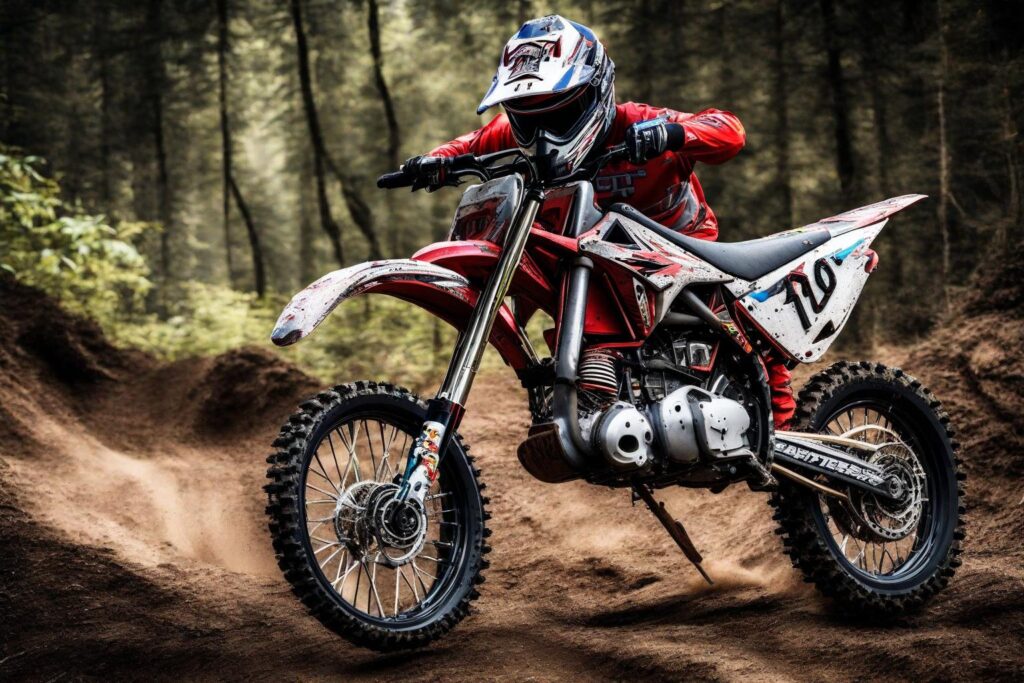
Where Can You Legally Ride a Dirt Bike?
If you have a dual sport dirt bike that’s titled and modified to be legal for the road, you can ride it on the street with a motorcycle license or endorsement. In most cases, an adult with a driver’s license can ride both on and off-road. However, if you’re riding on private property or in designated off-road areas, you usually don’t need a license to ride your dirt bike.
In many states, there are parks and motocross tracks that are designated for riding your dirt bike without needing a license. There might be other requirements like membership registration, paying session fees, wearing protective gear, and keeping the maximum sound or decibel level within limits. You can also ride on private outdoor spaces like your backyard, as long as you have permission.
When the whole family is planning to ride, it’s important to keep in mind the age restrictions. Minors may need supervision from an adult, and in some states, a rider training certificate may be required. Regulations can vary, so check with your local DMV, licensing agency, or a local dealership to understand the laws and whether you need a permit or license to ride your dirt bike legally.
Conclusion
Navigating dirt bike licensing can be tricky due to the mix of legal, safety, and environmental concerns involved. Whether you’re riding off-road or on street-legal dirt bikes, it’s important to know the specific rules for your state. Electric models and unique regulations make it even more complex. As a youth rider starting with a mini dirt bike, or an adult upgrading to more powerful versions, staying within the boundaries of the law is essential to avoid issues.
For racers using off-highway motorcycles on a competitive track, or those riding in different terrains, it’s vital to remain compliant with the relevant source of law. Understanding the challenging legal landscape ensures responsible and informed riding, while also keeping yourself and others safe during your riding adventures.
FAQs
Do I need a license to ride a dirt bike off-road?
Whether you need a license to ride a dirt bike off-road depends on your place of residence. In some countries or areas, you might need special off-road permits, even if you’re riding on private land or designated trails. It’s important to check local legalization before planning any off-road adventures to ensure you’re following the rules and regulations in your area.
Are there any age restrictions for dirt bike riders?
In many countries, there are specific age requirements and restrictions for dirt bike riders, especially if you’re planning on riding on public lands or participating in certain events. These rules can vary depending on the location, so it’s important to check the local law before planning any off-road activities to ensure you’re following the regulations in your area.
Can I ride my dirt bike on public roads?
If you want to ride your dirt bike on public roads, it must meet certain street-legal specifications. This means it needs to be customized with lights, mirrors, and a license plate. Additionally, the rider must be licensed to operate the motorbike. However, keep in mind that local laws can vary depending on the place you’re riding, so always check the rules in your area before hitting the road.

